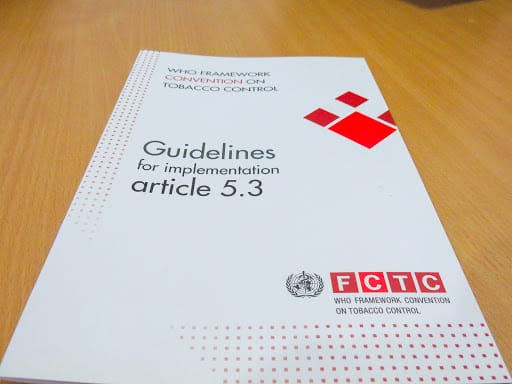
India Tobacco Industry Interference Index 2020

Led by Dr. Upendra Bhojani and Adhip Amin from IPH, the India Tobacco Industry Interference Index 2020 report has been produced through a collaborative work of several institutions and individuals active in tobacco control research and practice in India. The report was released in September 2020 at the 5th National Conference on Tobacco or Health (NCTOH)-Virtual. Dr. Upendra Bhojani participated in the conference and was a panelist in a session that focused on Stopping Tobacco Industry Interference. The NCTOH panel talk and release is available here at NCTOH youtube page.
This report is a systematic and collaborative effort at assessing the implementation of the WHO FCTC Article 5.3 in India. The Tobacco Industry Interference Index helps to assess the implementation of the FCTC Article 5.3 through standardized tools using a systematic inquiry and materials in the public domain. Index report and summary are available for download at the India country page on the Global Tobacco Index webportal.
Tobacco industry interference in public policies remains a major concern in India. The overall score for the India 2020 Tobacco Industry Interference Index is 61 out of 100. This suggests a small but definite improvement in implementation of the FCTC Article 5.3 in 2019 compared to the year 2018 (score 69/100) and 2017 (score 72/100). Higher score indicates greater interference.









